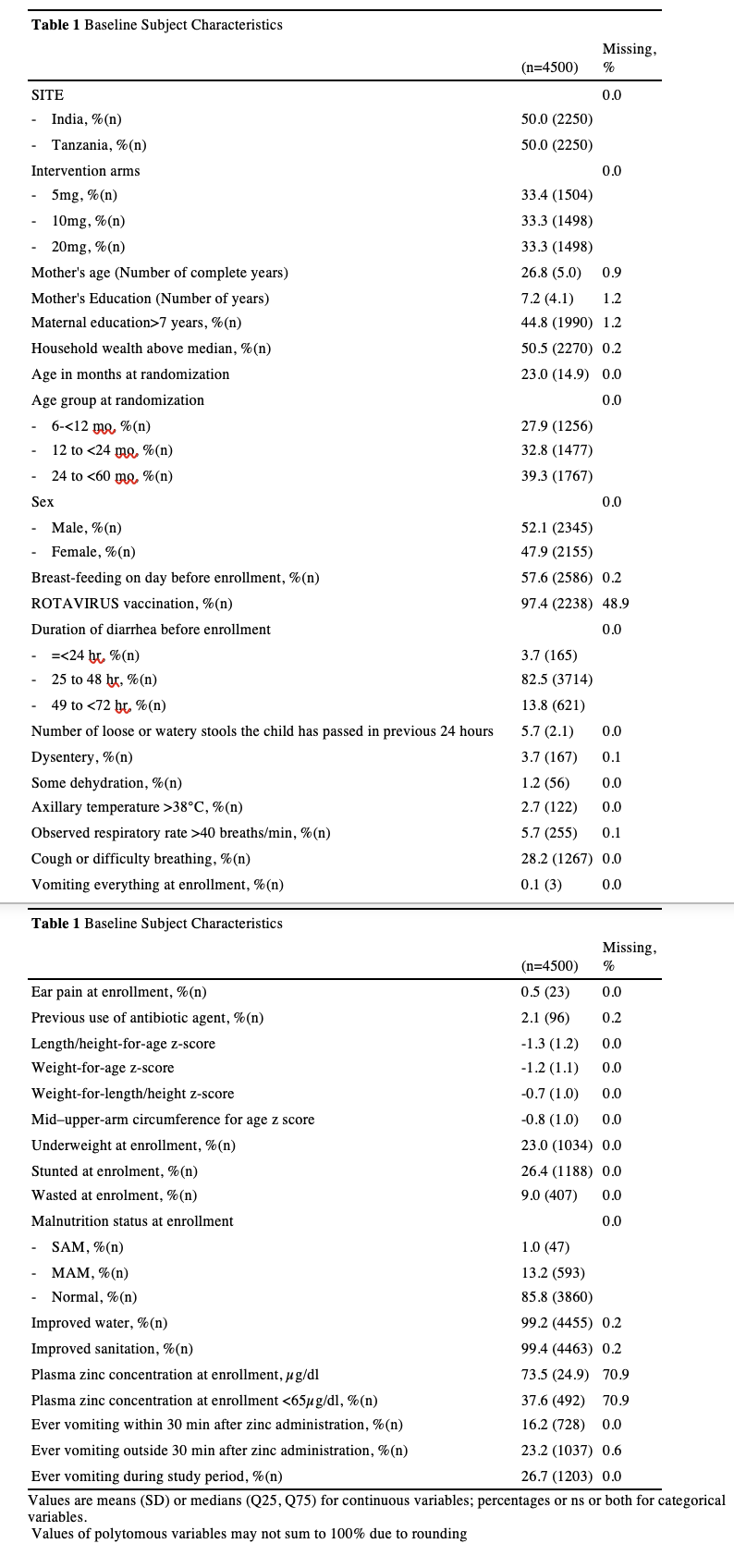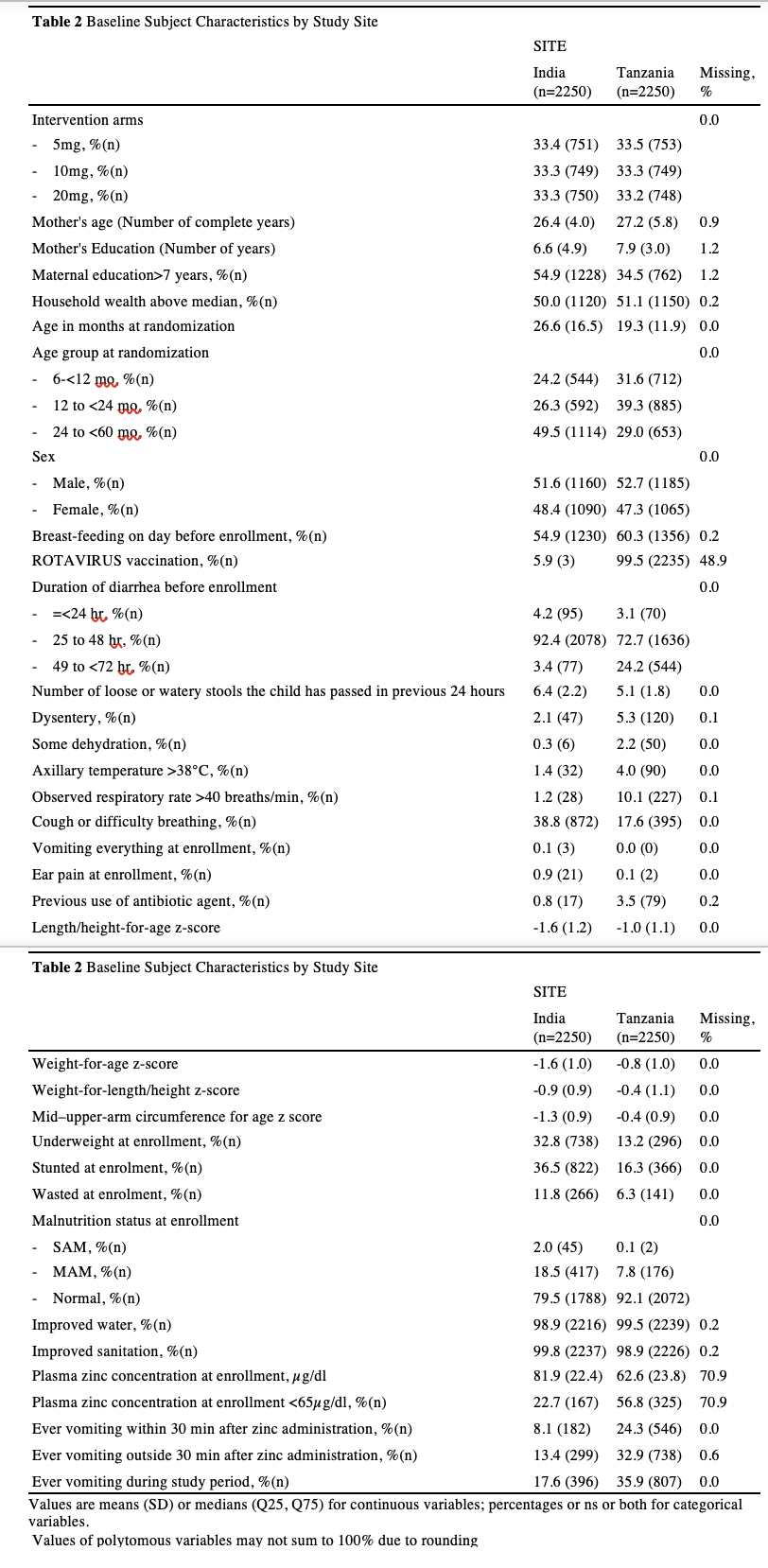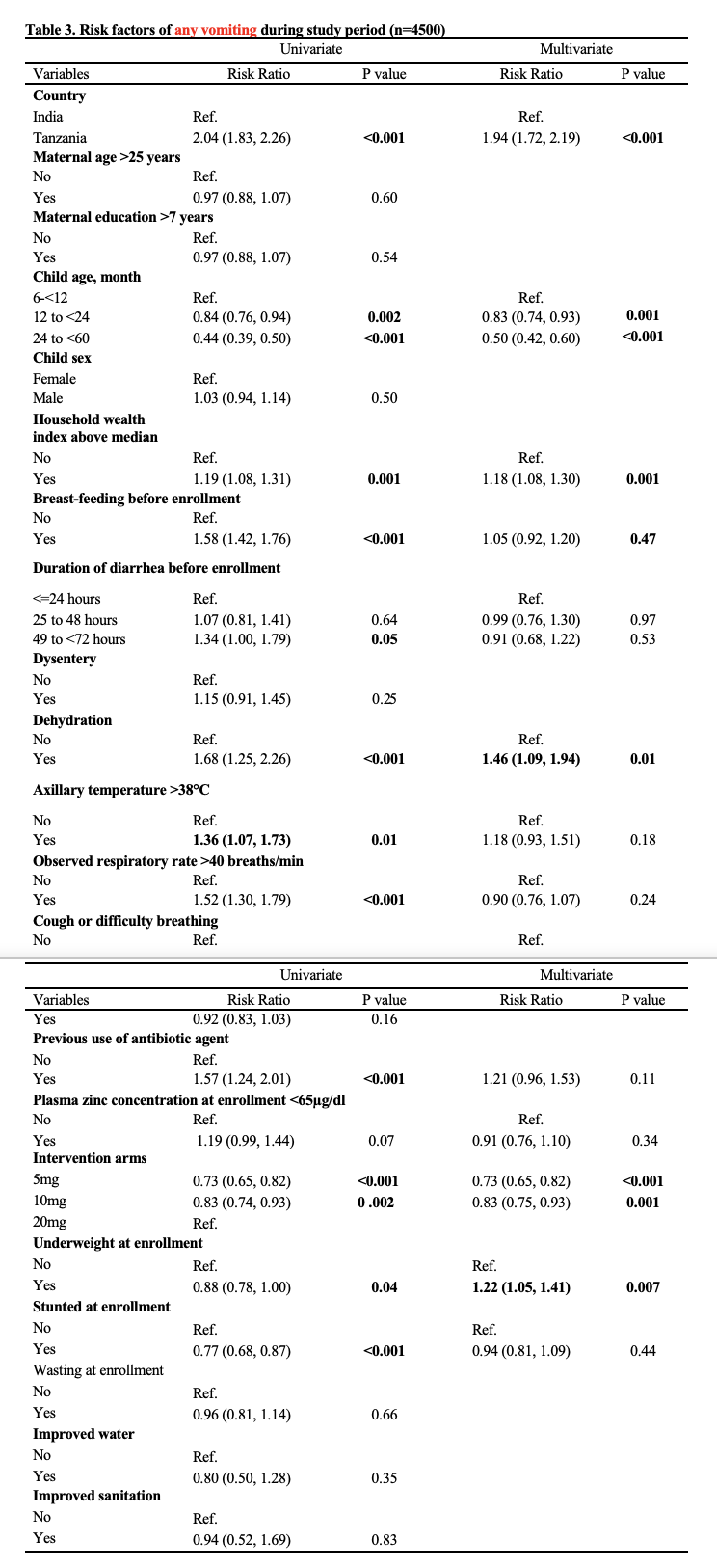Global Neonatal & Children's Health
Global Neonatal & Children's Health 3
542 - Identifying Risk Factors for Vomiting during Diarrheal Illness: A Zinc Therapeutic Dose Trial Secondary Analysis
Publication Number: 542.409

Jeffrey G. Edwards, MD, MPH (he/him/his)
Resident Physician
Boston Children's Hospital/Boston Medical Center
Boston, Massachusetts, United States
Presenting Author(s)
Background:
Supplemental zinc during acute diarrhea reduces illness duration and risk of persistent diarrhea but also increases vomiting. A recent randomized trial (the Zinc Therapeutic Dosing Trial – NCT03078842) found that lower daily doses of zinc (5 mg and 10 mg vs. 20 mg) in children with acute diarrhea offered the advantages of lower risk of vomiting with comparable stool output and duration of diarrhea.
Objective: We hypothesized that risk factors for vomiting besides the receipt of high dose zinc existed.
Design/Methods: We performed a secondary data analysis of 4500 children aged 6-59 months with an acute episode of diarrhea (less than 72 hours before enrollment) in a two-center randomized, double blind controlled trial in India and Tanzania. Participants received standard of medical care, were followed for 14 days of zinc administration. Log-binomials models were used to examine associations between vomiting and potential risk factors, relative risks (RRs) and 95% confidence intervals (CIs) were reported.
Results: The trial included children with an average age of 23 months, with 47.9% (2155) being female, and with 50.4% (2270) having a household wealth above median. Tanzania and India both enrolled 2250 participants, with the Indian cohort skewing older (average age 26.6 months) compared to the Tanzanian cohort (average age 19.3 months). Of 4500 children enrolled, 1203 (26.7) had any vomiting during the study period. After adjusting for multiple demographic and clinical characteristics, enrollment at the Tanzania site (RR 1.94, CI 1.72 – 2.19), household wealth above the median (RR 1.18, CI 1.08 – 1.30), presence of dehydration (RR 1.46, CI 1.09 – 1.94), and being underweight at enrollment (RR 1.22, CI 1.05 – 1.41) were factors associated with an increased risk of developing vomiting throughout the duration of the study period. Older age (12-24 months RR 0.83, CI 0.74 – 0.93; 24-60 months, RR 0.50, CI 0.42 – 0.60), and lower zinc dosing (5 mg intervention arm RR 0.73, CI 0.65 – 0.82; 10 mg intervention arm RR 0.83, CI 0.75 – 0.93) were associated with a lower risk of vomiting.
Conclusion(s): We identified sociodemographic (age, household wealth) and clinical (underweight status, dehydration) factors that increased the risk of vomiting in children with diarrheal illness receiving zinc supplementation. This information can help stratify which individuals are most at risk of developing vomiting, and could more accurately inform illness counseling given to caretakers regarding the risk of complications of diarrheal diseases.


